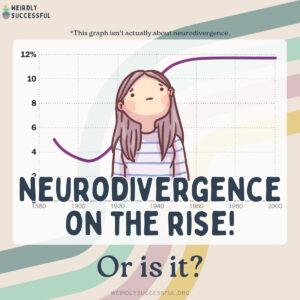Related terms from our glossary
alexithymia
Alexithymia is the inability to assign names to feelings, describe them to others or talk about them. It is considered a separate neuropsychological …
allistic
The term allistic refers to people who are not autistic. Neurodivergent and neurotypical people can both be allistic if they are not autistic.
ARFID
ARFID stands for Avoidant/Restrictive Food Intake Disorder. It is characterized by highly selective eating habits, often to the point of nutritional …
AuDHD
AuDHD is an unofficial term for co-occurring Autism and ADHD – it is used when someone has both conditions.
auditory stimming
Auditory stimming is a natural self-regulatory behavior that involves making sounds with your voice, either through non-word vocalizations (vocal …
autistic burnout
Autistic burnout refers to a state of physical, mental, and emotional exhaustion experienced by autistic people. It is a result of prolonged exposure …
autistic speech patterns
Autistic speech patterns refer to unique ways autistic folks communicate or use language, but these patterns can also be present throughout the …
context switching
Context switching refers to the cognitive process of shifting attention between different tasks or mental states. It involves disengaging from one …
decompressing
Decompressing refers to engaging in activities or behaviours that allow a person to relax, unwind, and alleviate stress or sensory overload.
This …
demand avoidance
Demand avoidance means appearing opposed to doing something when it’s perceived as a demand, especially from an authority figure – even if you …
double empathy
The double empathy problem is a concept in neurodiversity studies that suggests a mutual misunderstanding between neurodivergent and neurotypical …
echolalia
Echolalia is a speech pattern where individuals repeat words, phrases, or sounds they have heard. Common in autism, it serves various purposes, …
emotional regulation
Emotional dysregulation refers to difficulty in effectively managing and controlling one’s emotions. It is characterized by intense, unpredictable, or …
executive dysfunction
Executive functions are essential, they help us make plans, stay organized, pay attention, and keep our emotions in check. It plays a big role in …
flat affect
Flat affect is an autistic speech pattern that can include fewer facial expressions, reduced eye contact and speech that others might describe as …
hyperfixation
Hyperfixation is a term often used in the context of neurodivergent individuals, particularly Autistics and ADHDers. It refers to an intense and …
info dumping
Info dumping is the casual name referring to the act of sharing an extensive amount of information, usually about a subject or topic the person is …
masking
Masking is a partly unconscious effort to hide or suppress the manifestations of your neurodivergence. It is an exhausting process that many of us do …
night terrors
Night terrors are episodes of intense fear during sleep that involve screaming, physical movement, and autonomic arousal (racing heart, rapid …
palilalia
Palilalia is a form of verbal expression where someone involuntarily repeats their own words or phrases, often with decreasing volume. This natural …
penguin pebbling
In a neurodivergent context, the expression is used to describe a common neurodivergent behaviour of people collecting and giving loved items to …
restriction
Restriction means being prevented from moving freely or being confined against your will. It can include being held down, trapped, or having your …
scripting
Scripting is a communication pattern where individuals use memorized or prepared phrases in their interactions. Common in autism, it serves as a …
sensory overwhelm
A feeling of immense distress, a sensory overwhelm / autistic overwhelm is a strong reaction to stimuli caused by the compounded effects of stress, …



